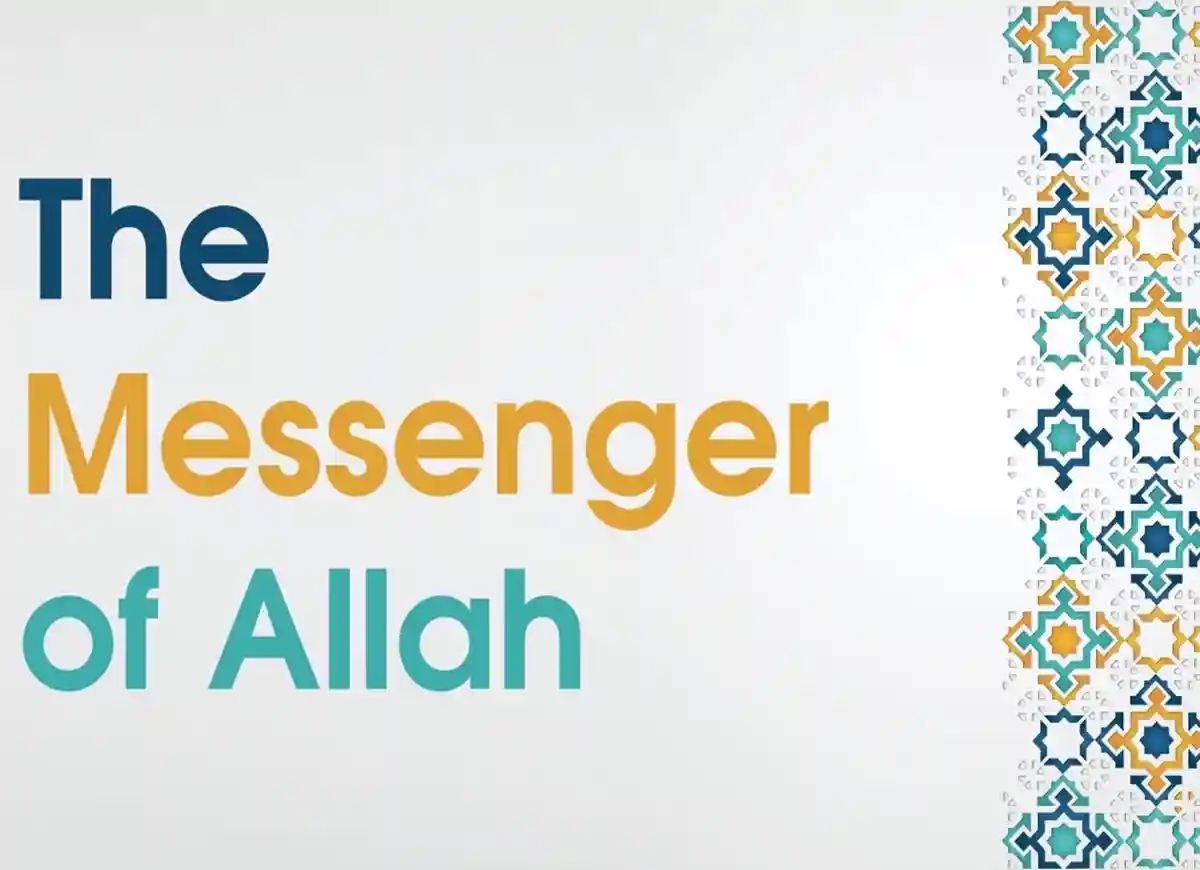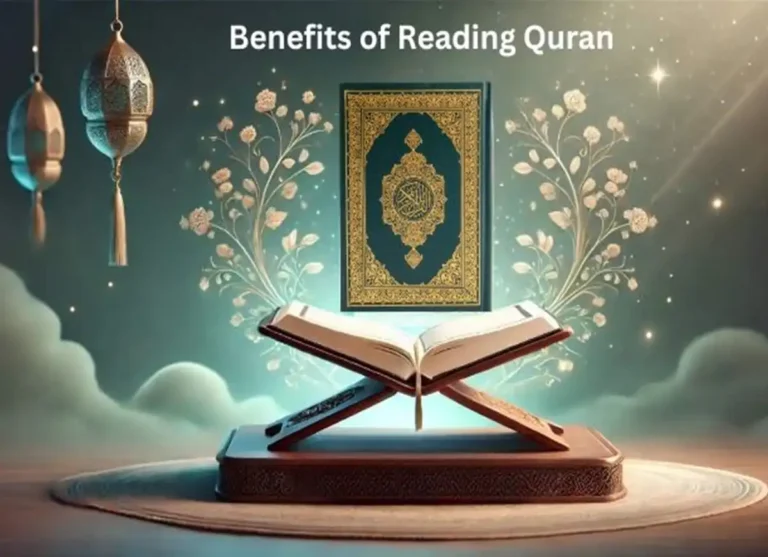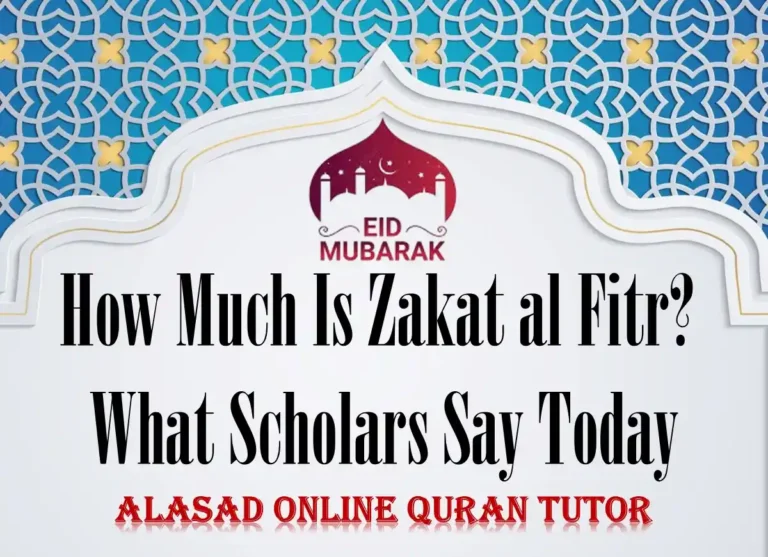Exploring the Divine Connection: Delve into the Significance and Impact of the Messenger of Allah in Islamic Tradition” In normal conditions, Allah does not speak to man directly. He does not tell anyone of us separately to do this
Allah uses His Prophets and Messengers to instruct us on what to do or not do. He chose a person to share His word with. The one who gets this divine message becomes Allah’s Messenger.
THE PROPHETS AND MESSENGERS MENTIONED IN THE QUR’AN
There are twenty five prophets and messengers whose names appear in the Qur’an. They are…
- Adam عَلَيْهِ ٱلسَّلَامُ
- Nuh (Noah) عَلَيْهِ ٱلسَّلَامُ
- Idris (Idris or Enoch) عَلَيْهِ ٱلسَّلَامُ
- Salih (Salih or Methusaleh) عَلَيْهِ ٱلسَّلَامُ
- Ibrahim (Abraham) عَلَيْهِ ٱلسَّلَامُ
- Hud (Hud or Heber) عَلَيْهِ ٱلسَّلَامُ
- Luut (Lot) عَلَيْهِ ٱلسَّلَامُ
- Younus (Jonah) عَلَيْهِ ٱلسَّلَامُ
- Isma’il (Ishmael) عَلَيْهِ ٱلسَّلَامُ
- Ishaq (Isaac) عَلَيْهِ ٱلسَّلَامُ
- Yaqoub (Jacob) عَلَيْهِ ٱلسَّلَامُ
- Yousuf (Joseph) عَلَيْهِ ٱلسَّلَامُ
- Ayyub (Job) عَلَيْهِ ٱلسَّلَامُ
- Shu’ayb (Shoaib or Jethro) عَلَيْهِ ٱلسَّلَامُ
- Musa (Moses) عَلَيْهِ ٱلسَّلَامُ
- Haroon (Aaron) عَلَيْهِ ٱلسَّلَامُ
- Al Yasha (Eleysha) عَلَيْهِ ٱلسَّلَامُ
- Dhul Kifli (Dhulkifli or Ezekiel) عَلَيْهِ ٱلسَّلَامُ
- Dawood (David) عَلَيْهِ ٱلسَّلَامُ
- Zakariyya (Zachariah) عَلَيْهِ ٱلسَّلَامُ
- Sulayman (Solomon) عَلَيْهِ ٱلسَّلَامُ
- Ilyas (Elias) عَلَيْهِ ٱلسَّلَامُ
- Yahya (John the Baptist) عَلَيْهِ ٱلسَّلَامُ
- Isa (Jesus) عَلَيْهِ ٱلسَّلَامُ
Muhammad ﷺ, Ahmed (Meaning – Praised One); May the prayers and blessings of Allah be upon them all.
Allah sends message to the Messenger through Angel Jibreel).
Messenger of Allah then gives this message to people. Allah sent 124000 messenger to different people at different times and ages. They spoke to people in Allah’s name and guided them. The Prophets and Messengers of Allah were men.
The first Prophet was Adam
The last Prophet was Prophet Muhammad
Some other Prophets were:
- Nuh عَلَيْهِ ٱلسَّلَامُ
- lbraaheem عَلَيْهِ ٱلسَّلَامُ
- lshaq عَلَيْهِ ٱلسَّلَامُ
- Vusuf عَلَيْهِ ٱلسَّلَامُ
- Musa عَلَيْهِ ٱلسَّلَامُ
- Haroon عَلَيْهِ ٱلسَّلَامُ
- Dawood عَلَيْهِ ٱلسَّلَامُ
- Vahyaa عَلَيْهِ ٱلسَّلَامُ
- Lsa عَلَيْهِ ٱلسَّلَامُ
QUESTRIONS AND ANSWERS
When was the Prophet صلى الله عليه وسلم born?
Ans. The Prophet Muhammad was born on Monday 9th of Rabi ul Awwal
Where was the Prophet صلى الله عليه وسلم born?
Ans. The Prophet Muhammad ,In Makkah, Saudi Arabia
3. What is the name of the صلى الله عليه وسلم father?
Ans. The Name of Prophet Muhammad Fathe is Abdullah
- ibn Abdul-Muttalib
- ibn Hashim
- ibn Abd-Manaf
- ibn Qusayy
- ibn Kilaab
What is the name of the Prophet Muhammad’s صلى الله عليه وسلم
mother?
Ans. Aaminah bint Wahab ibn Abd-Manaf ibn Zuhra ibn Kilaab
When and where did the Prophet Muhammad’s صلى الله عليه وسلم father pass away?
Ans. He passed away in Yathrib (Madinah) before Muhammadصلى الله عليه وسلم was born
What is the name of the Prophet Muhammad’s صلى الله عليه وسلم paternal grandfather and what was his position?
Ans. Abdul Muttalib, who was the chief of his clan, theBani Hashim Name the nannies of the ?صلى الله عليه وسلم Prophet
Ans. Thuwaybah, Haleemah, Shaymaa & Umm Ayman (r.a.d), the first two also suckled the Prophet صلى الله عليه وسلم as a baby
Who was the midwife of the ?صلى الله عليه وسلم Prophet
Ans. Al-Shifa bint Aouf (Umm Abdul Rahman)
Who named the Prophet, ?صلى الله عليه وسلم Muhammad
Ans. His grandfather, Abdul Muttalib
What did Prophet Muhammad’s صلى الله عليه وسلم mother name
him?
Ans. Ahmad
Why did the Prophet Muhammad’s صلى الله عليه وسلم mother choose
this name?
Ans. Because she saw an angel in a dream calling the new
born baby Ahmad
Where did the Prophet Muhammad’s صلى الله عليه وسلم mother take him when he was young?
Ans. She took him to Yathrib (Madinah) to visit his father’s grave and meet his uncles
Where did the Muhammad’s صلى الله عليه وسلم mother pass away?
Ans. On her way back to Makkah, she passed away at Abwa and was buried there
Who brought Muhammad صلى الله عليه وسلم back to Makkah?
Ans. His father’s servant, Umm Ayman (R.A)
Who took care of the Prophet Muhammad صلى الله عليه وسلم after his mother died?
Ans. His grandfather Abdul Muttalib
Which clan was the Prophet? from صلى الله عليه وسلم
Ans. Banu Haashim and Quraish respectively, which were the two most and honorable clans and tribes in Makkah
What work did the Prophet صلى الله عليه وسلم do until the age of 40?
Ans. He used to be a shepherd and tend to sheep, but was also a trader
Who was Khadijah (R.A)?
Ans. She was a wealthy business woman of Makkah
Why did Khadijah (R.A) want to marry Muhammad صلى الله عليه وسلم ?
Ans. Because of his truthfulness and good conduct
At what age did Khadijah (R.A) marry Muhammad صلى الله عليه وسلم ?
Ans. When she was 40 years old
How old was Muhammad صلى الله عليه وسلم at the time of the marriage?
Ans. He was 25
What did the Prophet Muhammad صلى الله عليه وسلم give his wife Khadijah as Mahr (dowry)?
Ans. Twenty camels
Was Khadijah (R.A) a widow before she married the Prophet Muhammad صلى الله عليه وسلم?
Ans. Yes. The Prophet صلى الله عليه وسلم was her third husband
How many children did the Prophet الله عليه وسلم have with Khadija (R.A)?
Ans. The Prophetصلى الله عليه وسلم had 4 daughters (Zainab, Ruqayyah, Ummi Kulthum and Faatimah) and 2 sons (Qasim & Abdullah (also known as Tayyib and
Taahir)
Did the Prophet صلى الله عليه وسلم have any other children?
Ans. He had one other son named Ibrahim from his servant, Maariyah. All of the sons of the Prophet صلى الله عليه وسلم passed away before the age of 5
Name the 11 wives of the Prophet صلى الله عليه وسلم?
Ans. Khadijah, Sawdah, Aaisha, Hafsah, Zaynab bint Jahsh, Umm Salamah, Zaynab bint Khuzaymah, Juwairiyah, Umm Habeebah, Safiyyah & Maymoonah (r.a.d)
Name the son-in-law of the صلى الله عليه وسلم Prophet?
Ans. Uthman ibn Affan (married to Ruqayyah & Umm Kulthoom at separate times), Ali ibn Abi Talib (married to Faatimah) & Abul Aas ibn Al-Rabi’ (married to Zaynab)
Were all the wives of the Prophetصلى الله عليه وسلم widows or divorcees before they married him?
Ans. Yes, all except Aaisha (r.a.) who he married due to a decree from Allah
Name the 6 paternal aunties of the Prophet صلى الله عليه وسلم ?
Ans. Safiyyah, Arwa, Aatiqah, Umm Hakeem al-Baida, Barrah & Umaymah
Name the grandmothers of the Prophet صلى الله عليه وسلم ?
Ans. Faatimah bint Omar (paternal) & Barrah bint Abdul Uzza (maternal)
How many times is the name of Muhammad صلى الله عليه وسلم mentioned in the Holy Quran?
Ans. Four times (3:144, 33:40, 47:2 & 48:29)
How was Muhammad صلى الله عليه وسلم known in his society
Ans. Al-Saadiq (The truthful)
and Al-Ameen (trustworthy)
Did Muhammad صلى الله عليه وسلم get any sort of formal education?
Ans. No, he didn’t get any formal education from the society, rather he was taught by
Almighty Allah
What must you say when the Prophet’s صلى الله عليه وسلم name is mentioned?
Ans. You must recite Durood and Salaam, e.g Sallal Laahu Alayhi Wasallam (May the peace and blessings of Allah be upon him).
What were the names of the 12 paternal uncles of the Prophet ?صلى الله عليه وسلم
Ans. Harith, Abu Talib, Zubair, Abu Lahab, Gheedaaq, Muqawwam, Dhiraar, Quthm, Abdul Ka’bah, Hijl, Hamzah (R.A), & Abbas (R.A)
Name the 2 maternal uncles of the Prophet صلى الله عليه وسلم?
Ans. Al-Aswad ibn Yaghooth & Abdullah ibn Al-Arqam
Name the 3 Christian monks/learned men who saw the Prophet صلى الله عليه وسلم and recognized him
as the last messenger?
Ans. Buhaira, Nastoorah & Waraqah ibn Nawfal
Who brought the revelation from Allah?
Ans. The Archangel, Jibraeel
What was the mission of the Prophet صلى الله عليه وسلم?
Ans. To invite the humankind and jinnkind all over the world to Islam and the Oneness of Allah. He was sent as a mercy to the universes and to perfect the best of character. He accomplished his mission
Who were the first people to embrace Islam?
Ans. The first woman was Khadijah (R.A) (The Prophet’s صلى الله عليه وسلم wife), The first slave was Zaid Ibn Haaritha (R.A) (The Prophet’s صلى الله عليه وسلم freed slave),
Who were the first ladies after Khadijah (R.A) to accept Islam?
Ans. Abbas’ (R.A) wife Ummul Fadl, – Ja’far (R.A)’s wife Asma Bint Umais, – Abu Bakr (R.A)’s daughter Asma Bint Abi Bakr and Umar (R.A) sister Fatimah Bint Al-Khattaab
How was the dawah done in the early days of Islam?
Ans. It was done in secret for 3 years. Thereafter the Prophet صلى الله عليه وسلم received revelation and declared to all an open invitation to Islam
During this period, where would the Muslims gather secretly?
Ans. They would gather secretly in the house of a Muslim called Arqam to learn about Islam and about the revelations sent down to the Prophet صلى الله عليه وسلم
How many people embraced Islam in the early stage?
Ans. About forty. (Umar 40th)
What was the impact of the Prophet’s صلى الله عليه وسلم public preaching?
Ans. Some people mocked Islam and others accepted
Who was Ali (R.A)?
Ans. He was the son of Abu Talib and cousin and son-in-law of the Prophet صلى الله عليه وسلم
How many sons did Ali (R.A) have from Fatimah (R.A)?
Ans. Three; Hasan, Husain (R.A) and Muhsin who passed
away in infancy
What happened in the year of sorrow (aam ul huzn)?
Ans. The Prophet’s صلى الله عليه وسلم protector (uncle Abu Talib) and comfort (wife Khadijah (R.A.)) passed away, after which the Prophet صلى الله عليه وسلم went to Taif to give dawah and seek protection, but was pelted with stones and humiliated, thus returning to Makkah
What is the Israa & Mi’raaj?
Ans. The year after aam ul huzn Allah called the Prophet صلى الله عليه وسلم to honour and comfort him. He was taken from Makkah to Masjid ul Aqsa (Palestine) and from there to the heavens to meet Allah and receive the gift of Salaah
Why did the Prophet صلى الله عليه وسلم migrate from Makkah to Madinah Munawwarah?
Ans. Due to the persecution of the Muslims in Makkah. This is called the hijrah, from when the Islamic calendar begins
Why did the Prophet صلى الله عليه وسلم choose to migrate to Madinah?
Ans. Because the people of Madinah invited him and promised to unite and support
What date did the Prophet صلى الله عليه وسلم migrate to Madinah?
Ans. 12th Rabi ul Awwal 1ah (23rd September 622 AD) with his best friend Abu Bakr (R.A)
How did Allah protect the Prophet صلى الله عليه وسلم and Abu Bakr (R.A) when they migrated?
Ans. Allah instructed the spiders to weave a web and a pigeon to lay a nest at the mouth of cave thaur where they were hiding. Allah also made any horsemen who tried to follow them fall and stumble
After the conquest of Makkah how did the Prophet صلى الله عليه وسلم treat the enemies of Islam, the Quraysh and those who persecuted and tortured the Muslims in Makkah?
Ans. He showed them the mercy of Islam and forgave most of them. He did not take revenge nor did any other companion. He conquered Makkah (his home land from which he was driven out) without any battle or war
Name some of the famous battles the Prophet صلى الله عليه وسلم participated in?
Ans. Badr (2 a.h), Uhud (3 a.h), Ahzaab/Khandaq (5 a.h),
Hunain (8 a.h) & the conquest of Makkah (8 a.h)
How many times did the Prophet صلى الله عليه وسلم perform Hajj and Umra?
Ans. He performed 4 Umra (6, 7, 8 & 10 a.h) and 1 Hajj (10 a.h)
Name the 5 sincere assistants of the Prophet صلى الله عليه وسلم ?
Ans. Anas ibn Malik (daily errands), Abdullah ibn Masood (slippers & miswak), Uqbah ibn Aamir (mule), Asla’ ibn Shareek (camel) & Ayman ibn Ubaid (Ablution/washroom requirements)
Describe the illness of the Prophet صلى الله عليه وسلم after which he passed away.
Ans. On Wednesday, 28th Safar 11 A.H. Nabi صلى الله عليه وسلم experienced a severe headache and thereafter developed a strong fever, which lasted for thirteen days.
When did the Prophet صلى الله عليه وسلم pass away.
Ans. On Monday the 12th of Rabi-ul-Awwal 11 a.h (6th June 632 AD) after the Zuhr Salaah whilst resting on the bed in the room of his wife Aaisha (r.a). He was 63 years old. This was the saddest day for the sahaba and in the history of Islam for all the Muslims
Where was the Prophet صلى الله عليه وسلم buried?
Ans. In the room of his wife Aaisha (r.a), in Madinah Munawwarah, Arabia. Just outside Masjid al Nabawi. Next to him are buried his 2 best friends, Abu Bakr and Umar (r.a.d) and a 4th space reserved for Isa (a.s) after he returns to this world and passes away
What was the inheritance of the Prophet صلى الله عليه وسلم ?
Ans. The Quran & Sunnah
What did the Prophet صلى الله عليه وسل describe as the coolness of his eyes.
Ans. Salaah, which he loved, enjoyed and stood in individual optional prayers for hours on end during the day and more so during the night
Describe the physical features of the Prophet صلى الله عليه وسلم ?
Ans. Rasulullah صلى الله عليه وسلم was not very tall nor was he short. Nabi صلى الله عليه وسلم was of a moderate height. His blessed head was proportionately large and his beard was thick. There were very few (25-27) strands of white hair on his blessed head and beard. The Prophet’s صلى الله عليه وسلم face was extremely handsome and bright, described to be brighter than the 14th full moon. The skin of Nabi
صلى الله عليه وسلم was softer than silk and the scent that emanated from his body was more fragrant than musk and ambar. His eyes were extremely beautiful and wide, with very dark black pupils and reddish streaks within. He had black hair and broad shoulders.
- Name some miracles of the Prophet صلى الله عليه وسلم ?
Ans.
1)The Quran,
2) the splitting of the moon,
3)water gushing from his
noble fingers,
4)animals he tendered giving
more milk,
5)clouds shading him as he
walked,
6)dust covering the eyes of
the enemy,
7)his perspiration smelling
sweet,
8)stones and trees making
salaam to him,
9) the crying of the date trunk,
10) moving of trees,
11) dried up wells becoming
full of water,
12) bitter well water becoming
sweet,
13) foretelling future events
that all came true ………. and countless more
Who did the Prophet صلى الله عليه وسلم appoint as the 1st Muatthin?
Ans. Bilal ibn Rabaah (rad), a black Ethiopian former slave
- Who were the Asharah Mubasharah (whom the Prophet صلى الله عليه وسلم guaranteed paradise)?
Ans.
1)Abu Bakr As-Siddiq,
2)Umar bin Al-Khattab,
3)Uthman ibn Affan,
4)Ali ibn Abi Talib,
5)Talha ibn Ubayd-Ullah,
6)Zubayr ibn al-Awwam,
7)Abdur-Rahman ibn Auf,
8)Sa’ad ibn Abi Waqqas,
9)Abu-Ubaida ibn al-Jarrah,
10) Said ibn Zayd
May Allah be pleased with them
Describe some qualities of the Prophet صلى الله عليه وسلم ?
Ans.
a. He was extremely charitable
and generous.
b. He was soft spoken.
c. He never rebuked anyone,
even his wives or slaves.
d. He smiled often.
e. He never hit anyone or even
any animal.
f. He had the best of character.
g. He never sought revenge for
himself.
h. He loved and kissed his
children.
i. He was the noblest husband
and bravest warrior.
j. He treated everyone equally
with kindness and compassion.
k. He is described by Allah as
Rahmatul lil Aalameen (a
mercy for all the universes)
What sport did the Prophet صلى الله عليه وسلم learn when he went to visiting his father’s grave?
Ans. Swimming
What other sports did the Prophet صلى الله عليه وسلم practice?
Ans. Horse riding, Archery, Running, Horse Racing (non gambling)
What What nasheed did the children sing when the Prophet صلى الله عليه وسلم arrived in Madinah?
Ans. Tala al badru alaynaa (The moon shone over us….)
When did the Prophet صلى الله عليه وسلم deliver his final public sermon?
Ans. On the 9th day of Dhul Hijjah 10 ah (632 A.D), during the Hajj in the valley of Arafah
What were the key themes in the Prophet صلى الله عليه وسلمfinal sermon?
Ans
a) Trust and Accountability
b) Financial obligations
c) Interest (ribaa is haraam)
d) Treatment of wife (spouse)
e) Warning about satan
f) Brotherhood
g) Superiority is only in piety and
submission
h) We must obey both Allah and his
صلى الله عليه وسلم messenger
i) Observe the pillars of Islam
j) Responsibilities regarding those
working under us
k) Muhammad صلى الله عليه وسلم is the last
Prophet & Islam the final religion
l) Our duty is to spread the
message of Islam
What food did the Prophet like صلى الله عليه وسلم ?l
Ans. Dates, honey, barley, milk, olives, olive oil, vegetables
Categories: PRAYER (Salat), ALMS (Zakat), SAWN (Fasting) HAJJ (Pilgrimage) & DUA (Supplications), Hadith and Tafseer, The Holy Quran, Quran Jaz 1- 114
Topics: Hijab, Arabic Corner, Islamic History, Biography, Islamic Studies, Halal & Haram








